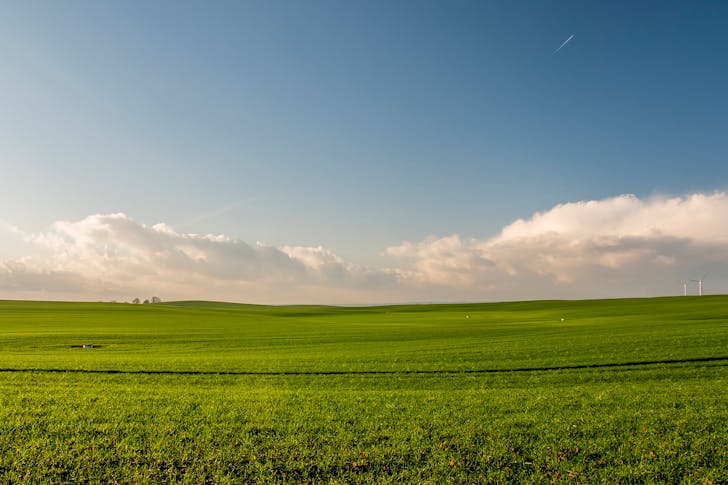
Everything You Need to Know About a Land Trust

Creating a land trust can be an essential move for those looking to protect their land. But how to create a land trust? In this comprehensive guide, we will explore the specifics and learn everything you need to know.
These trusts protect natural, agricultural, and recreational land from development, ensuring it remains preserved for future generations. They provide a flexible, private way for landowners to safeguard their land, keeping it out of the hands of developers and ensuring it is used sustainably.

Jah / Pexels / Essentially, a land trust is a private, nonprofit organization that actively works to conserve land by owning it or holding conservation easements.
How Does a Land Trust Work?
Land trusts work by acquiring land or conservation easements through purchase, donation, or bequest. When landowners donate or sell their property to a land trust, they can specify the use of the land, ensuring its future use aligns with their conservation goals. The trust then manages the land, ensuring it adheres to the specified conservation principles.
These legal agreements restrict the type and extent of development allowed on the land, protecting its conservation values. The trust monitors the land to ensure compliance, stepping in if any violations occur.
What are the 3 Major Types of Land Trusts?
Essentially, there are three primary types: Community Land Trusts, Illinois Land Trusts, and Conservation Land Trusts.
A Community Land Trust (CLT) is a nonprofit organization designed to ensure community ownership and control of land. It focuses on affordable housing and community development. The land is held in trust permanently, while individuals or families can lease and live on the land. This model ensures long-term affordability and community stability.

Olly / Pexels / CLT, Illinois, and Conservation Land Trust are the top three primary types of land trust.
The Illinois Land Trust is a unique legal tool for holding title to real estate. It is designed for privacy and ease of property transfer. In this trust, the trustee holds the title, but the beneficiary retains control over the property.
Likewise, a Conservation Land Trust focuses on preserving natural resources, wildlife habitats, and scenic landscapes. These trusts acquire land or easements to protect and manage these resources sustainably.
Should You Create a Land Trust?
Deciding to create a land trust depends on your conservation goals and property management needs. If you aim to protect your land from development, ensure its sustainable use, or provide affordable housing, a land trust can be a valuable tool. It offers flexibility, privacy, and long-term protection for your land.
So, yeah! Creating a land trust is a great idea.
How to Create a Land Trust?
So, how to create a land trust? Well, the process involves several key steps. Here is a breakdown of the steps:
First, decide the purpose of your land trust. Whether it is for community development, privacy in property ownership, or environmental conservation, having clear objectives will guide the entire process. This initial step is crucial as it shapes the structure and operation of your land trust.

Shvets / Pexels / Creating a land trust can provide peace of mind, knowing your property will be used according to your conservation values.
Next, consult with legal and financial experts. Setting up a land trust involves complex legal documents and tax considerations. An attorney experienced in land trust law and a financial advisor can help you navigate these complexities.
Once the agreement is in place, transfer the land to the trust. This step involves legally transferring the title of the property to the trustee. The transfer must be recorded in public records, formalizing the trust’s ownership of the land.
Now, manage and monitor the land according to the trust’s guidelines. This ongoing process ensures the land remains protected and used according to the conservation goals. Regular monitoring and enforcement of the easement terms are essential to uphold the integrity of the land trust.
More in Advisor
-
`
The Push for Tax-Free Tips in America – A Win or a Risk?
Tipping has long been a fundamental part of the American service industry, providing essential income for millions of workers. However, the...
February 20, 2025 -
`
Matthew Perry Foundation Launches Addiction Fellowship at MGH
The impact of addiction on individuals and families is profound, and the need for specialized medical care in this field has...
February 13, 2025 -
`
Celebrity Couples Who Have Ended Their Relationships in 2025
2025 has already seen its fair share of celebrity breakups, and the year is just getting started. From heartfelt announcements to...
February 6, 2025 -
`
How Trump’s Policies Will Reshape Artificial Intelligence in the U.S.
The United States witnessed a significant political shift as Donald Trump took the presidential oath once again. His return to the...
January 31, 2025 -
`
Millie Bobby Brown Shuts Down Age-Shamers with a Powerful Message
From the moment Millie Bobby Brown first appeared as Eleven in “Stranger Things,” she captured hearts worldwide. But growing up in...
January 25, 2025 -
`
Why Outsourcing Payroll Services Is a Smart Business Move
Managing payroll is no small task—it’s a crucial part of any business that ensures employees are paid accurately and on time....
January 15, 2025 -
`
These AI Stocks Should Be on the Watch List of Investors in 2025
The buzz around AI stocks is growing louder than ever. With artificial intelligence shaping industries like healthcare, finance, and tech, smart...
January 8, 2025 -
`
Why the Starbucks Workers Strike Is Expanding Across U.S. Cities
The Starbucks workers’ strike has gained significant momentum, with employees in more U.S. cities joining the movement to address unresolved issues...
January 2, 2025 -
`
Are Shawn Mendes and Camila Cabello Still Close After Breakup?
The connection between Shawn Mendes and Camila Cabello continues to intrigue fans worldwide. Their shared history, from chart-topping collaborations to a...
December 24, 2024















You must be logged in to post a comment Login